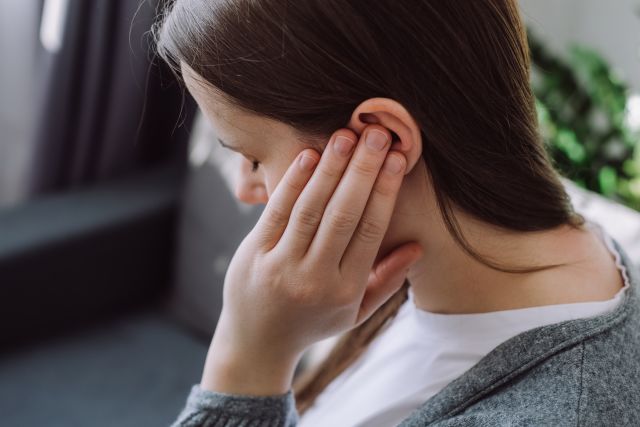Updated on July 24, 2023.
Does the sound of someone chewing food—or even breathing—bother you to no end? You may have a condition called misophonia. Also known as selective sound sensitivity syndrome, misophonia involves having a negative reaction to specific sounds. Noises like keyboard tapping, throat clearing, slurping, pen clicking, and chewing gum can all set off a reaction.
Around 20 percent of people in the United States are thought to experience some symptoms of misophonia, with roughly 6 percent having symptoms severe enough to disrupt their lives. That said, while you may find it annoying to hear someone slurping soup, it doesn’t necessarily mean you have this condition; misophonia is a disproportionate and disruptive response to hearing a triggering sound.
What are the symptoms of misophonia?
Misophonia is involuntary, a condition that causes a reflexive physical and emotional reaction toward different sounds. For example, people with misophonia experienced anger, anxiety, and irritability when they were exposed to noises such as eating, breathing, and sniffing according to a 2022 systematic review published in the International Journal of Environmental Research and Public Health.
The condition tends to start in childhood, in reaction to sounds repeatedly made by a parent or family member. Symptoms show at an average age of 13 according to some research, with some observed in children as young as 2 years old. Misophonia seems to be more common among people who live in a state of high stress or anxiety or who may have compulsive tendencies.
Other physical and psychological responses that may be triggered in someone with misophonia include the following:
- Anger, disgust, and/or irritability
- Anxiety
- Muscle spasms
- Pain in the arms, head, chest, or all over
- Tightness or pressure in the chest
- Increased blood pressure
- Increased body temperature and/or sweating
- Shortness of breath
It isn’t necessarily the loudness, frequency, or roughness of the sound that triggers a reaction. Soft sounds are common triggers and, in people who have multiple triggers, the sounds tend to share a consistent pattern. The person’s relationship with the source of the sounds also contributes, as well as the context in which they hear the sound.
People with misophonia have mild-to-moderate reactions in the majority of cases. Most are able to manage their anger and avoid outbursts or other external symptoms. For some, however, the condition is so severe that they can react aggressively or feel a strong need to constantly avoid the source of the sound.
Diagnosis and treatment for misophonia
Misophonia is not a well understood or widely researched condition, and it doesn’t yet have formal diagnostic criteria. It also overlaps with several other psychological conditions, which may be contributing to the problem of underdiagnosis.
If your symptoms are severe enough that they are interfering with your life, check with a healthcare provider (HCP). They may refer you to a psychologist or psychiatrist to evaluate your symptoms and check whether they can be explained by another condition, such as obsessive-compulsive disorder (OCD) or post-traumatic stress disorder (PTSD). If a different disorder isn’t behind the symptoms, you may be referred to an audiologist for hearing tests.
Once diagnosed, common treatment options for misophonia include:
- Tinnitus retraining therapy
- Cognitive behavioral therapy (CBT)
- Mindfulness-based stress reduction (MBSI)
- Positive association and desensitization
- Psychological or psychiatric evaluation and therapy
- Medication to help manage stress and anxiety
The bottom line
Although misophonia is increasingly being recognized as a serious condition, it’s still not well understood and may affect more people than currently known. Fortunately, new research is underway to better define misophonia, help HCPs recognize the symptoms, and more effectively treat people who are living with it.







